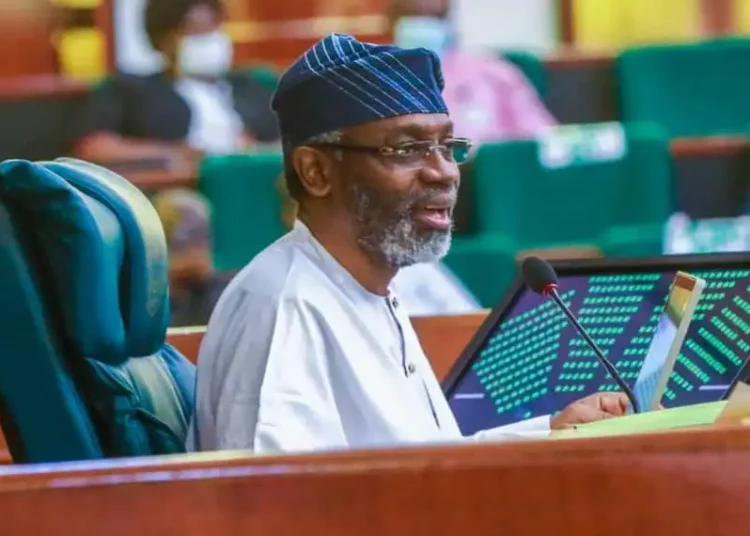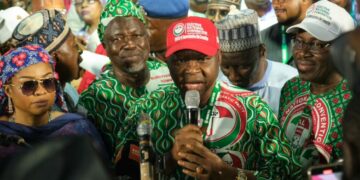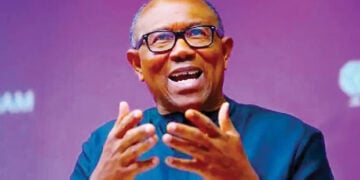The furore over political party primaries ahead of the 2023 elections is over but dust raised by political shenanigans leading to the primaries, particularly as regards the amendment to the Electoral Act is yet to settle. The lawmakers who are the ultimate losers in the political imbroglio are now licking their wounds but not in silence.
Speaker of the House, Femi Gbajabiamila in his opening remarks at the resumption of plenary last Tuesday sorrowed over the inability of many members to secure nomination tickets of their political parties and blamed same on the delegate system of election.
“I made bold to say here that the legislature has once again suffered losses. The loss is not only for members who lost, it is a loss to democracy, the institution and the country.
“If it means anything, I know and I am aware that many of our members did not lose the primaries because they were rejected by their constituents, no, far from it.
“Many of our members lost because of the process. The process which we foresaw in the House of Representatives. The delegate system, unfortunately, was not what the delegate system is supposed to be.
“Many of our members lost because they were not even given a fair share or fair shot. We have good legislators, both here in the chambers and back home, who are probably not coming back because of this same process.
“When we fought for Direct Primaries in this House, we knew exactly what we are saying. And in that fight, we kicked and was pushed back by those who knew who failed to know what they need to do, that has now become the bane of the institution of the legislature.”
I can imagine a parliament admitting to its failure just because it doesn’t favour its interest. The above statement appear more insensible to me when the following day (Wednesday) one of the best losers, Ben Igbakpa, a member representing Ethiopie Federal Constituency of Delta State asked the lawmakers to gather signatures and override the president’s veto on the amendment made to the Electoral Act. The speaker Gbajabiamila, in his response, told Igbakpa to present that matter on notice during plenary and would be considered.
While I have seen many politicians cry foul and adjudged as undemocratic, any process skewed against their interest, this particular situation is top-notch hypocrisy. Where was Igbakpa when President Mihammadu Buhari rejected the amended Electoral Act over the direct primary clause? And why did Gbajabiamila and his vibrant colleagues have to wait for the process to ‘fail Nigerians’ again only to suddenly realise that, as a parliament, they could override the president’s veto? This does not show leadership, good leaders avoid pitfalls, they don’t cry foul after their followers have sunk into it.
Why should the House remind us of how much they have failed in their responsibility to put things right if indeed the parliament believes that the delegate system was not good enough for our electoral process?
President Buhari withheld his assent on the first bill sent to him, citing the cost of conducting direct primary elections, security challenges, and possible manipulation of electoral processes by political players as part of the reasons for his decision. Why didn’t the parliament invoke section 58(5) of the constitution, if they believed only in the direct primary since they may not be able to influence the political parties’ choice of which model to adopt if they left the options open?
Section 58(5) states “Where the President withholds his assent and the bill is again passed by each House by a two-thirds majority, the bill shall become law and the assent of the President shall not be required.”
Thereafter, the House re-amended the law to include the direct and indirect primary options while the Senate re-adjusted it to include the direct, indirect, and consensus modes of selecting political parties’ candidates. Both chambers later passed a harmonised version of the amendment to Clause 84 which included the direct, indirect, and consensus primary modes.
On the issue of statutory delegates, the lawmakers committed an error during the amendment to the Electoral Act, which they hurriedly amended and transmitted to President Buhari for assent. Unfortunately, the President and the National Assembly had fallen out of understanding over the formers request that section 84(12) of the Act should be amended, but the parliament turned down the request.
According to the President, section 84 (12) constitutes a disenfranchisement of serving political office holders from voting or being voted for at conventions or congresses of any political party. This, he said, was for the nomination of candidates for any election in cases where it holds earlier than 30 days before the National Election.
Sequel to this, no communication was received from the President regarding the hurriedly amended section 84(8) and the position of the law remained until political parties held their primaries. And since the 30 days constitutionally required for the president’s assent did not elapse before the primaries, the parliament at the time lack the constitutional power to act on the proposed amendment.
According to the Constitution, the President has 30 days to decide whether to sign or withhold assent to a bill passed by the National Assembly.
The moral question is, why is the House hellbent on overriding the president’s veto on section 84(8) at the same time insisting on not amending section 84(12)? Is the interest of the parliamentarians different from the interest of the president and that of other Nigerians?
Head or tail, the did have been done, let those who have lost their tickets to the legislative inconsistency lick their wounds in silence and not disturb the polity because they lost, every politician should return to the grassroots and court the locals from amongst whom delegates are chosen.





